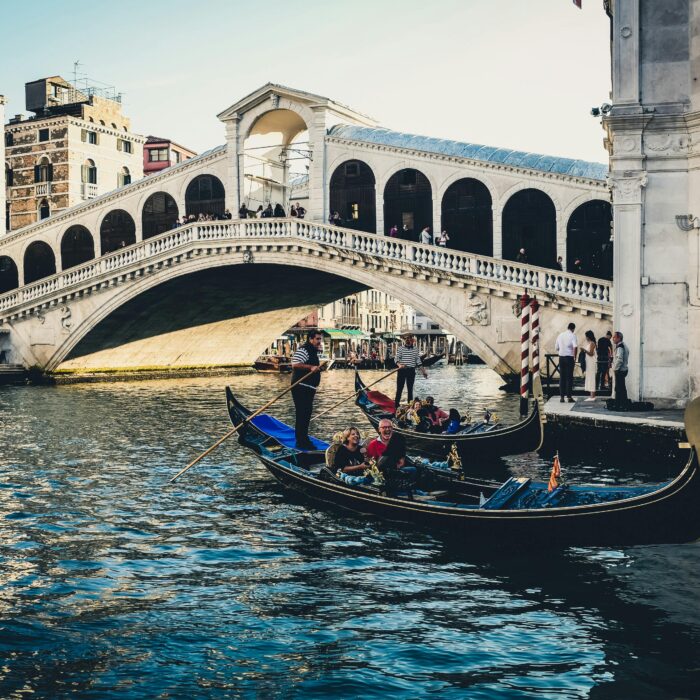You have no items in your cart. Want to get some nice things?
Go shopping
Fields, cows, helicopters. Naked breasts, policemen, tractors and mud. The latest video on the Plane Stupid website is infused with a continental vibe from Nantes, in North West France, where farmers and activists have been protesting for months against the building of a new airport. Plane Stupid, a UK network that protests against aviation expansion, is linking successfully with ecological movements around the world. Some of its stunts, such as a rooftop protest on the Houses of Parliament, have been media coups. Its tagline is “bringing the aviation industry back down to earth.”
What of the people behind the struggle, whose lives are devoted to a constant fight? Transgressing for ideological reasons has long been seen as heroic, pardonable. In literature, political transgressors intrigue and fascinate. Sartre illustrated the dilemma in his trilogy Roads to Freedom. His anguished protagonist, philosophy professor Mathieu, struggles against indecision. He longs to act, to make a choice, to believe in something. His opposite is Brunet, a communist, a man of action, certain of being right, whom Mathieu describes as “very real.”
A similar contrast can be found in Ronan Bennett’s The Catastrophist. In the Belgian Congo just before its independence in 1959, journalist Ines is devoted to supporting Patrice Lumumba against the CIA. The narrator James, a writer, sees doubt as essential to his art. His inability to commit to the struggle condemns him to lose Ines. This is the myth of the activist as “other”, a person who is born that way, who can believe more strongly, is free of doubt, and in possession of a nearly suicidal courage.
Historical activists who defied the law and went against their times are now household names. Rosa Parks, Mahatma Ghandi, Martin Luther King or Emmeline Pankhurst have gained hero status. But what about right now, in the UK? We might not hear about them much, but you can still find groups who believe strongly in a cause and are not afraid of breaking the law in its support. I talked to Plane Stupid environment campaigner Kevin Lister to find out what it takes to be an activist.
Direct Action

Kevin is no stranger to clashes with the police. His direct action against airlines has seen him defacing posters, holding an airport’s photovoltaic lights to ransom and organising campaigns against the aviation industry. In 2010 came the biggest confrontation. He had been campaigning against the Air Tattoo, the world’s largest military air show, which takes place in Fairford every July. Kevin describes the show as “an arms fair masquerading as a family event,” a “fossil-fuel burning jamboree.” He did extensive research, taking into account the number of planes and the routes they would take, and found their carbon emissions would negate all environmental efforts by Gloucestershire County Council for a whole year. He sent his report to the BBC but no one wanted to print it.
Then he posted a spoof website purporting to be that of the Air Tattoo. The website claimed that the show was being cancelled because the organisers were worried about climate change. The response was dramatic. The police raided his house at dawn. He was arrested. The fraud charge meant he risked 10 years in prison. He was kept on bail for 18 months before all the charges were dropped. In the meantime, his job had been endangered, his life disrupted. He says the case was weak and that there was no way the Crown Prosecution would uphold it in court.
I ask him how ecological activists feel when they have to break the law. “They’re scared of doing wrong things. But sometimes the causes are bigger than themselves. Normal discussions don’t achieve anything. Writing letters doesn’t work. What we do can be construed as illegal. Some element of criminal damage is part and parcel of the fight.”
Kevin clearly believes that our world is in imminent danger as a result of the drastic rise in carbon dioxide emissions. “The situation is desperate,” he says. “In ten or fifteen years it will wipe us out.”
He adds: “The companies know they have no moral base – bosses aren’t stupid, they know they are wrong, but if they admitted it their business would be closed down, they would go to prison.”
A Powerful Enemy
The individual protestor ranged against a powerful, Goliath-like enemy is a familiar pairing in the history of ideological battles.
The aviation industry has the government and police force on its side, and apparently endless resources. Fossil fuel-burning corporation EDF recently tried to sue activists from No Dash for Gas for £5 million in a massive intimidation move. Lawyers for these activists noticed that police seemed to be giving names of protesters directly to EDF.
Kevin points out that there seem to be two sets of rules. Plane Stupid have uncovered myriad cases of fraud. For instance, a small local Gloucestershire airport needed a runway for private jets. Kevin made a dossier arguing that its business case was fraudulent. He took it to police. The police did nothing, yet they had not hesitated to arrest him over the Air Tattoo spoof website episode. “They have the power and we don’t,” he says. “We have to risk everything.”
He tells me of the scale of the fraud and abuse that goes on; the carbon credit system that is “open to absolute and total abuse,” and the companies set up in India for the sole purpose of creating carbon credits.
The enemy appears ruthless and invincible. And it keeps tabs on environmental movements, helped by the police. An infiltration attempt was made on Plane Stupid in 2008 by an undercover operative in London. He was unmasked and found to be working for an investigation company. Plane Stupid suspects that he had been hired by BAA (now known as Heathrow).
I ask Kevin about such infiltrations and he says they are common. The aviation industry is concerned about the protests and actions. He tells me that he heard “through the grapevine,” back in 2008, that Air Tattoo organisers became worried about the threat posed by environmental activists after they were targeted by a virulent campaign. This campaign of emails and banner-defacing was led largely by Kevin himself, but had seemed to Air Tattoo to come from a far larger group.
Altruism
Like most protestors, Plane Stupid members have to balance their activities with holding down a job. Kevin is a maths lecturer and works on his lengthy and complicated aviation reports in his spare time. Organising a demonstration takes a phenomenal amount of preparation. His activities are like “an enormously full-time second occupation.”
Kevin says he has always been interested in the environment. He grew up on the West Coast of Scotland – he still retains a very slight accent – and his experiences of sharing the environment with his friends made a lasting impression on him. In the 80s he read about the concept of Gaia, in which life on earth acts as a control system to keep the environment stable.
I ask him why he is so devoted to the cause. “When my children were born,” he says, “I was determined to do what I could to ensure that the environment was protected for their benefit. I think I am also naturally curious. I don’t like being given simple answers to complex problems and don’t believe that such things exist.”
An indifferent world

Most frustrating to Kevin is the indifference of the world, the attitude of “business as usual”. Despite the fraudulent activities of large companies that environment groups have uncovered in the past, they are still able to portray the protestors as the transgressors in the relationship.
He points out that even in the Independent and the Guardian, two UK papers that are the most forward thinking about climate change, the message is feebly transmitted. He says: “If I pick up the Guardian, there is nothing about climate change.” He leafs at random through the Guardian Saturday. “Nothing about climate change, but an advert for a Panda 4×4, an advert for American Airlines…”
He says there is more space for advertising than there are articles devoted to carbon-producing activities.
High-profile public events are also linked to high carbon emissions and are sponsored by controversial corporations. “Take the Olympics,” Kevin says “It was just corporations spending millions. BP was a sponsor, Dow Chemicals as well, even after that disaster in Bhopal. BA was involved, BAA as well, all the most destructive companies. It’s like the Nazis sponsoring the 1936 Olympics.”
The Future
It’s an exciting time for Kevin and Plane Stupid as they link with France, Germany and the USA, in a “worldwide coordination movement.” Kevin doesn’t shrink from strong language. “It’s a war,” he says. “Like world war one, world war two, Vietnam.” He explains that in the past, wars were nation state against nation state, the world clearly divided. Now, “the war has already started. The corporations are at the top, ignoring all the evidence. Underneath are all the other, the exploited.”

The problem, he says, is drawing other people to the cause when it has nothing visible to offer, no concrete improvement. The ANC could promise a better world without Apartheid; the suffragettes were fighting for clear rights. All that Plane Stupid has to offer are restrictions: if they get their way, people won’t be able to use planes to hop across the channel for a short trip. “If we win, which is virtually impossible,” he says, “we won’t get a better, exciting world, but a limited future, much more constrained.”
The message has a grim, simple beauty. Restraint and sobriety are apparent in Plane Stupid’s videos, showing farmers marching alongside protesters, activists discussing a campaign. These people’s lives seem fuller because of the cause that inhabits them. Their demeanour doesn’t express doubt, only a calm certainty. Perhaps this is what gives them the courage to break the law. It takes a certain type of person to believe in a cause that seems, at first view, hopeless. The activist is an unlikely mix of oracle, outlaw and strategist. Kevin’s vision is grounded in the reality of seeing the Scottish countryside of his youth becoming polluted. Other protesters have an equally clear idea of what the world should be like.
The fact that their opponents are stronger and have more resources does not deter them. Indeed, their attitude resembles sociologist Pierre Bourdieu’s advice to scientists and researchers in his call for an international social movement to oppose capitalist globalisation, Firing Back: Against the Tyranny of the Market 2: “throw [your] grain of sand into the well-oiled machinery of resigned complicities.”

Patricia Duffaud
Patricia Duffaud is a writer of mixed French and Northern Irish origin. She writes short stories, features and reviews and her work has appeared in Wasafiri Magazine, the Puffin Review and Thresholds. One of her stories was highly commended in the Gladstone's library's Mystery Lady short story competition. She is currently non-fiction editor for Litro online.





The Politics of Transgression: An Activist’s Story | Litro http://t.co/tIYWDBy61p